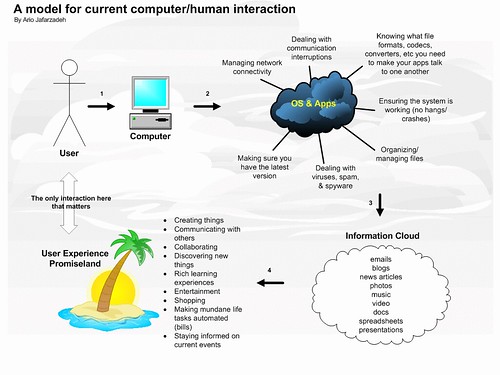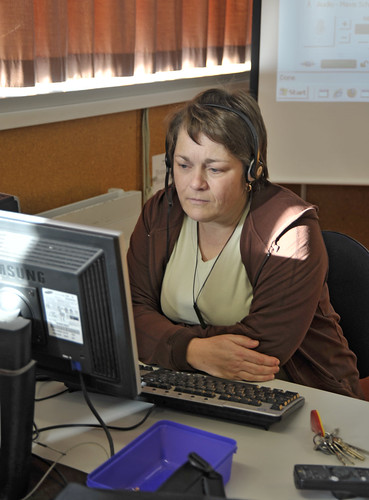College Admissions
College Admissions
Preparing for College
The Best College for You
What to Study
Applications
Education Options
Education Options
Private Universities
Public & State Universities
Community Colleges
Scholarships
Scholarships
African American Scholarships
Latino Scholarships
Native American Scholarships
Women Scholarships
College Grants
College Grants
Federal Grants
Merit Based Grants
Need Based Grants
Student Loans
Student Loans
Federal Student Loans
State Student Loans
No Co-signer Student Loans
Bad Credit Loans
Student Loan Consolidation
College Survival
College Survival
Financial Aid Tips
The Digital Student Blog
The internet has been abuzz the last couple of days after UK-based Birmingham City University announced it would offer a master’s degree level program in social media.
Eyebrows have been raised and critics on both sides of the concept have been weighing in on the idea that college students could soon be able to earn a graduate degree based on their knowledge and ability to use Facebook, MySpace, Twitter and Bebo.
The Program
 The one-year course in social media will explain how to set up blogs and publish podcasts in addition to focusing on social networking sites as communications and marketing tools.
The one-year course in social media will explain how to set up blogs and publish podcasts in addition to focusing on social networking sites as communications and marketing tools.
The designer of the program, Jon Hickman offered the following insights to the British media:
“During the course we will consider what people can do on Facebook and Twitter, and how they can be used for communication and marketing purposes. It’s not for freaks or IT geeks, the tools learned in this course will be accessible to many people.”
Required to conform to university academic standards, the course will “entail synoptic research and scholarly activity,” two fundamental criteria for approval for a Masters level program. The new concept will feature a mixture of lectures, seminars, research workshops, presentations and field-trips.
To earn a masters in social media, students will have to complete either a social media production project or an original piece of research in the form of a 15000-word dissertation.
The Basis for Providing a Program
As for a rationale for a graduate program in social media, Hickman went on to add:
“It’s very relevant and very scholarly. It’s a new course, but its importance is unquestionable.
“Social media is very important for jobs within the marketing and communications sector, as a skill set within other jobs, and as an industry within itself.”
Hickman is not the first to propose the future importance of social media. Michael Wesch, Assistant Professor of Cultural Anthropology at Kansas State, has often advocated that Facebook could be a useful tool in the educational setting.
Well-known for a number of YouTube videos that have taken the internet by storm, Wesch offers that as a university professor he has found Facebook to be very useful.
The professor understood long ago that Facebook was not only a great tool for expressing a person’s identity and sharing that identity with friends, the site provided all the tools necessary to create an online learning community.
Based on Wesch’s support for the use of Facebook, some have postured that all teacher training programs should involve some instruction in social media.
However, the Birmingham program will focus more on the business use of social media and using this new technology for commercial gain. Information available at the school’s web page also notes the new MA program will not only explore the techniques of social media as a creative industry but will seek to contribute new research and knowledge as to other potential uses for these networking sites.
Many Questioning the Instructional Value
Naturally, there are critics of the new program. Many people see social networking sites like Facebook or MySpace as nothing more than off-task behavior for today’s net generation. These critics find the idea that colleges have begun offering courses in social media nothing short of appalling.
 At the same time, the generation that has become dubbed as digital natives is wondering why anyone would need a course to learn how to socialize on Facebook or converse with Twitter. After announcing the program, Hickman could find a number of blogs that were insisting that the program as constructed was too basic.
At the same time, the generation that has become dubbed as digital natives is wondering why anyone would need a course to learn how to socialize on Facebook or converse with Twitter. After announcing the program, Hickman could find a number of blogs that were insisting that the program as constructed was too basic.
In addition, there was a question as to who would teach these courses as there certainly can not be any credentialed college professors who themselves have earned a degree in the social networking field. That led some to postulate that the students in the program would likely know more than those responsible for course instruction.
Indeed with such a cutting-edge program, knowledge would appear to be developing every day – in fact, as yet another critic postulated, the developments in social media are occurring so rapidly the program will likely be out-of-date before the first graduating class heads off into the sunset.
More details on the university set to break the mold are available here.
Flickr photos courtesy of Amit Gupta and Boris Veldhuijzen van Zanten.
When it comes to future careers, the reality is that most of us cannot even fathom what some of the more sophisticated job options will be. But if you want to put yourself on the cutting edge of technology and in a position to step into one of those careers that has yet not even been created, you may want to consider one of the following study options.
Microtechnology and Nanotechnology
When it comes to technology, the bottom line is that everything is getting smaller. From the miniature electronic accelerometers that trigger airbag deployments in autos to the incredible versatility built into today’s smartphones, technology is growing ever smaller even as it grows more sophisticated.
Perhaps no field holds greater promise for the future than the field of microtechnology. It is a career option that is so cutting edge that academic programming and degree options are just now being created.
Microtechnology is a concept that takes massive amounts of information and/or mechanical processes and then condenses them into a microchip for use in computers, mobile phones, medical devices, automobile computer systems, and security products. Items are made utilizing integrated circuit processing techniques and range in size from one-millionth (micro) to one-one thousandth (milli) of a meter.
 Moving even smaller is a separate field called nanotechnology. The prefix “nano” originates from a Greek word meaning one billionth of a specified unit. Therefore, nanotechnology is a subsection of microtechnology involving the study of objects that are 1,000 times smaller.
Moving even smaller is a separate field called nanotechnology. The prefix “nano” originates from a Greek word meaning one billionth of a specified unit. Therefore, nanotechnology is a subsection of microtechnology involving the study of objects that are 1,000 times smaller.
The construction of new nanotube-based components could ultimately revolutionize aeronautics. Carbon nanotubes (pictured right) are lighter than steel but 100 times stronger. Such materials will allow airplanes and spacecraft to fly higher while using less fuel and have led researchers to imagine a future with spy planes the size of insects.
People who work in the field are often called microtechnicians and of course span a broad range of industries. Potential career options range from medicine to defense systems and will likely involve every technical career in between. Ultimately, scientists believe this new technology will surpass the scope of the computer revolution, potentially affecting everything from the construction of batteries to the treatment of cancer.
The National Science Foundation estimates the U.S. will need 800,000 to 1 million nanotechnology workers over the next ten years. Because of those potential future demands, the foundation has established nanotechnology centers at six different universities, each conducting research in potential cutting-edge applications.
For some additional information on this cutting edge option, head on over to the Oklahoma State University web site.
Visual Representation of Complex Data
 The explosion in technology has made information gathering and collection much easier for researchers. In addition, scientific research is growing in complexity. The result can be a disconnect between the results of in-depth research and the ability of non-researchers to make sense of the data that has been created.
The explosion in technology has made information gathering and collection much easier for researchers. In addition, scientific research is growing in complexity. The result can be a disconnect between the results of in-depth research and the ability of non-researchers to make sense of the data that has been created.
Therefore, representing complex data for readers, whether it be citizens trying to make sense of information online or other researchers not versed in sophisticated mathematical operations, is a growing challenge. In simplest terms, the idea is to be able to accurately reflect numbers and facts in visual form to help the public and/or decision-makers interpret the data being presented.
Today, there are now courses and a field of study that examine visual representation methods and techniques all with an eye towards increasing the understanding of complex data. The field focuses in on how we humans process information visually and therefore looks at the best design practices for visualization. This unique career option crosses over into the world of computer programming languages yet offers some of the creative flair of the graphic arts field.
The field has even spawned an interactive visualization application program called Processing. The concept is putting an end to the over-reliance on traditional graphs and charts.
At Harvard, one course in data visualization has most elements available online for students interested in learning more about this career option.
Human-Computer Interaction
Yet another amazing cutting edge career option involves the push towards meshing technological capabilities with their human counterpart. An entire institute has been formed at Carnegie Mellon that has as its mission, “To understand and create technology that harmonizes with and improves human capabilities, goals, and social environments.”
 Looking to study the effects of computer science on society, these programs feature interdisciplinary research and education in computer design and the fields of behavioral and social science. In simplest terms, the field looks at the full cycle of our new exploding, information-rich society, and examines the effect of technology on how we adults work, play and communicate.
Looking to study the effects of computer science on society, these programs feature interdisciplinary research and education in computer design and the fields of behavioral and social science. In simplest terms, the field looks at the full cycle of our new exploding, information-rich society, and examines the effect of technology on how we adults work, play and communicate.
For those concerned that our technological advances are not leading to improved lives for individuals and groups, the field of human-computer interaction may just be the place to work. Ensuring that our technology does in fact improve the lives of citizens is as critical as the theoretical creation of new technologies.
For more on this incredibly important field, head on over to the Carnegie Mellon web site.
Flickr photos courtesy of St Stev, chromedecay and ario j.
There has been a long tradition of students from European countries taking a year off from school to work and travel. The year away, dubbed a gap year, has customarily been taken upon the completion of high school and prior to starting college.
The number of Americans taking time to work and travel has always been far less. In fact, the concept on this side of the pond tends to be associated only with upper-middle-class students from private schools.
But amidst the worst economic recession in decades, some are suggesting that it may well be time for more students to give greater consideration to the gap-year experience. Add to that fact the potential of a revamped financial aid system and it is clear that the gap year concept could well be a great choice for many more Americans this year.
Benefits of a Gap Year
 When considering a gap year, most students envision using the time to travel and to gain additional work experience. Occasionally, some individuals also seek to improve their academic preparation during their year away from school.
When considering a gap year, most students envision using the time to travel and to gain additional work experience. Occasionally, some individuals also seek to improve their academic preparation during their year away from school.
The benefits of a gap year are well-documented. Students taking a year off before entering college “mature earlier than their peers who come straight to college from high school.” Taking the time to travel or work full-time will expose students to a number of challenges that are distinct from those experiences one obtains in the school setting. The result is the chance to develop additional personal skills, making it easier for you to handle the social and intellectual stresses that come with college demands.
In addition, students who take a gap year are able to get a better grip on what it is they want to do with the rest of their life. A gap year is particularly helpful to students who are unsure where they want to attend school or the course of study they want to pursue.
Experiencing a gap year enables students to explore different job options, a process that ensures they are able to better determine their choice of college major. In many instances, the gap year also helps a student decide if college is really in the cards for them. A year of work and answering to a supervisor can give a person a new perspective regarding four years of additional study.
Lastly, if students are concerned about their overall academic preparation, a gap year with a focus on sharpening academic skills can be exceedingly helpful. Taking a couple of adult education classes or community college courses are an inexpensive way to sharpen those math, writing and technology skills. They can also give students a taste of what the college environment will consist of, again helping a student make a more informed decision.
Effect of Financial Crisis
In writing for the NY Times, Johnathan D. Glater offers his thoughts as to how the economic recession and the proposed policies of the Obama administration could well make the gap year an even better choice for certain students this year.
President Obama’s college proposals, legislation that offers “the most sweeping changes in federal college aid programs in decades” according to Glater, include significant increases in aid for needy students. If passed, the legislation would offer more fixed rate, low-interest student loans as well as larger grants for those students who qualify.
 Glater notes the changes must first go through Congress. Therefore, if they are to be approved, the expanded financial support for students would not take effect until July 2010. Ultimately, waiting a year could put a student in a position to access these additional funds.
Glater notes the changes must first go through Congress. Therefore, if they are to be approved, the expanded financial support for students would not take effect until July 2010. Ultimately, waiting a year could put a student in a position to access these additional funds.
Though likely to be a relatively small increase, Glater goes on to note that if the student applying represents the oldest in the family, waiting another year could place that individual in college with a younger sibling or siblings for more overlapping years. With benefits also contingent on the number of family members in school at the same time, waiting a year could well positively impact a family’s overall outside support significantly.
In addition, Glater notes that asking to defer admission for a year, something colleges generally are very willing to do, could be critical for those families with parents worried about their current job security or who have been negatively impacted by the financial downturn. Irrespective of the job issue, Glater notes that all families will face greater challenges securing credit and college loans in the current environment.
Add to that fact the impact of the economic downturn on everyone’s college savings plans and now might simply not be the time to begin taking on the substantial costs associated with attending college.
Will Times Be Better?
Of course, there is the possibility that the Obama plan will not pass Congress. There is also the potential that our economic funk may not be over. Certainly, while everyone is hopeful that better times are just around the corner, we are experiencing a more severe economic downturn than anyone could have previously imagined.
Glater does offer a balanced view, quoting Seth Allen, dean of admission and financial aid at Grinnell College in Iowa:
“There’s a real possibility things could be worse,” warn Allen. “What if the markets have actually dropped further, and the kind of economic news coming out suggests that unemployment will continue to rise and endowments for the foreseeable futures will remain flat?”
In other words, the competition for funds could be even greater a year from now. Therefore, today’s economic difficulties should not cause students to consider a gap year if a student has not considered the idea previously.
Is the Gap Year Right for You?
 Clearly, taking a year off from school has documented benefits. Another year to gain experience and to earn some additional funds are two great ways to help students be better prepared for the rigors of college.
Clearly, taking a year off from school has documented benefits. Another year to gain experience and to earn some additional funds are two great ways to help students be better prepared for the rigors of college.
Such a year can help students confirm whether or not college is truly the next step for them. It can also be extremely helpful towards clarifying their potential career goals and therefore shed great light on their choice of college and major.
And a year away from full-time school can also be used to help improve academic preparation should a student be in need of such.
One may then add to these traditional benefits the two points raised by Glater, the issues brought about by our current economic downturn and the aid proposals of President Obama. Collectively, they represent a strong basis for considering a gap year.
However, making such a choice based solely on Glater’s financial concerns may well be nothing more than a gamble. Therefore, students should seriously consider a gap year only if they believe that the experience will better prepare them for their future, whether that future will consist of a move straight into the workforce or the pursuit of a college diploma.
Simply stated, a gap year is not for everyone. But the rationale for taking one has grown given the recent economic developments in our country.
Editors Note: For more on the gap year concept including help with determining possible gap year experiences, peruse one of the many Gap Program websites available on the web. A search on the phrase gap year will provide a wealth of sites that discuss the concept further while a search of gap year programs will bring you to sites that assist students with a gap year experience.
Flickr photos courtesy of Cats-Eye-View, tacitreqieum and Chichacha.
The collapsing economy means that job prospects for this year’s college graduates are more competitive than at any previous time in our nation’s history. In these extraordinarily difficult times, members of the Class of 2009 are truly struggling to find meaningful entry-level employment options.
In addition, with many expecting the tough times to linger, members of the Class of 2010 may also want to begin thinking about one of these alternative paths. While often seen as unusual choices in other years, these four alternatives to the traditional workforce could be just the ticket for those having difficulty securing an entry-level position.
The AmeriCorps
One consideration for upcoming graduates is the AmeriCorps. In fact, if you have spent time being of service to others then you know just how rewarding community service type programs can be.
The program clearly focuses on a way of life that involves a commitment to others for a lifetime. In fact, as part of the AmeriCorps Pledge, participants are expected to not only pledge their support for the upcoming year but in the years ahead.
 In the Corps, there is a wide range of potential ways to serve. The application process begins with interested applicants filling out a form that focuses on their personal areas of interest. The second aspect offers applicants a chance to consider the specific location they wish to service.
In the Corps, there is a wide range of potential ways to serve. The application process begins with interested applicants filling out a form that focuses on their personal areas of interest. The second aspect offers applicants a chance to consider the specific location they wish to service.
The program offers more than 75,000 opportunities for “adults of all ages and backgrounds to serve through a network of partnerships with local and national nonprofit groups.” AmeriCorps provides individuals the opportunity to apply their skills and ideals with an eye towards meeting critical community needs.
Whether it be to tutor and mentor disadvantaged youth, improve health services or build affordable housing, the Americorps offers a wealth of opportunities that will help graduates gain valuable work experience.
One of the critical benefits of full-time members is a Segal AmeriCorps Education Award of $4,725. This sum may be used to pay for college, graduate school, or to pay back qualified student loans. Part-time corps’ members may receive a partial Award. In some cases, AmeriCorps members may also earn a small living allowance during the period that they provide their services.
In addition, the program offers qualified student loan forbearance. While interest continues to accrue on your loans during this period of forbearance, successful completion of your term of service can result in the payment of all or a portion of the interest that has accrued on qualified student loans during the service period.
AmeriCorps is made up of three main programs. The AmeriCorps State and National Program supports a broad range of local intensive service programs to meet critical community needs. For those interested in supporting organizations and public agencies to create and expand programs that build capacity and ultimately bring low-income individuals and communities out of poverty, there is the AmeriCorps VISTA program. And finally, the AmeriCorps NCCC (National Civilian Community Corps), a full-time residential program for men and women, ages 18-24, that seeks to strengthen communities while developing leadership traits.
While it is getting late for the Class of 2009, interested applicants may still find some limited opportunities available.
The Peace Corps
One of the oldest service programs, the Peace Corps began in 1960 with John F. Kennedy’s calls to service. As opposed to the Americorps focus on our own country, the Peace Corps is designed around the establishment of world peace through living and working in less-developed countries.
Today, the number of volunteers is nearing 200,000. Working on such important matters as AIDS education, information technology and the protection of the environment, those volunteers have served in 139 different countries. Ultimately, Peace Corps Volunteers “continue to help countless individuals who want to build a better life for themselves, their children, and their communities.”
 As with the AmeriCorps, the Peace Corps offers tangible benefits beyond those of skill development and the feeling of satisfaction that comes with helping others in need. Corps volunteers receive pay and living expenses, some vacation time, and transportation to and from the country of service. In addition, they also receive student loan deferment.
As with the AmeriCorps, the Peace Corps offers tangible benefits beyond those of skill development and the feeling of satisfaction that comes with helping others in need. Corps volunteers receive pay and living expenses, some vacation time, and transportation to and from the country of service. In addition, they also receive student loan deferment.
Those interested will also find a great array of potential service opportunities with each area offering many different options for duties and responsibilities. There are truly possibilities for every graduate irrespective of college major.
Peace Corps Volunteers work in the following areas: education, youth outreach, and community development; business development; agriculture and environment; health and HIV/AIDS; and information technology.
Perhaps the best aspect is that the Peace Corps accepts applications on a rolling basis. Therefore, there are still plenty of opportunities for 2009 grads to consider.
Teach for America
One of the most popular and competitive options is Teach for America. Program spots are limited and the number of applications has been going up every year, but the financial benefits of the program are significantly higher than either the aforementioned AmeriCorps or Peace Corps positions.
The program also features essentially only one option, teaching. The goal of the program is to bring the nation’s best and brightest to the classroom in an effort to end educational inequity.
 Teach For America is currently a member of the AmeriCorps programs and therefore currently offers corps members who have not served previously as AmeriCorps members the traditional benefits of loan forbearance (the postponement of loan payments) and an education award of $4,725 at the end of each year of service (a potential of $9,450 over the two years), that may be used for future educational expenses or towards the repayment of qualified student loans.
Teach For America is currently a member of the AmeriCorps programs and therefore currently offers corps members who have not served previously as AmeriCorps members the traditional benefits of loan forbearance (the postponement of loan payments) and an education award of $4,725 at the end of each year of service (a potential of $9,450 over the two years), that may be used for future educational expenses or towards the repayment of qualified student loans.
In addition, Teach for America Corps members receive the same salaries and health benefits as other beginning teachers. Corps members teaching in urban sites can effectively see starting salaries of anywhere from $30,000 to a high of $47,000 while those placed in a rural area would typically earn somewhere between $27,000 and $45,000. These salaries are also dependent on degree qualifications with the higher sums available only to those who have earned a graduate degree.
New applications for the 2009 fall year are now closed but those interested in the program will soon be able to pursue opportunities for 2010.
Graduate School
One of the fall back positions for undergraduates has always been graduate school. Entry allows students loan forbearance, a critical development for those unable to secure meaningful employment.
Adding to the luster of graduate school options, several schools have responded to the current situation facing graduates. For example in the northeast, Worcester Polytechnic Institute and Northeastern University are offering significant tuition discounts for master’s degrees programs to both this year’s graduates as well as new alumni.
 What can make the graduate school option even more viable is to obtain an graduate level assistantship. Among the various options are Teaching Assistants (TAs), Research Assistants (RAs) and Service Assistants (SAs). Each may offer pay and/or tuition-room and board adjustments in return for your services.
What can make the graduate school option even more viable is to obtain an graduate level assistantship. Among the various options are Teaching Assistants (TAs), Research Assistants (RAs) and Service Assistants (SAs). Each may offer pay and/or tuition-room and board adjustments in return for your services.
One truly great option is a program that features a partnership between the Peace Corps and a number of colleges and universities across the US. The partnership offers master’s degree level academic credit at more than 50 colleges and universities as well as financial incentives for Peace Corps service.
In addition, another Fellows/USA program offers scholarships or reduced tuition at more than 40 participating schools. Ultimately, the Peace Corps partnership program offers students the best of two worlds, viable and personally rewarding service experiences and the foundation of a meaningful graduate program.
Think Ahead
The exceedingly difficult job market certainly may have managed to sneak up on the Class of 2009. Though your opportunities are far more limited at this time, if you are struggling to find an entry-level position you should be sure to exhaust each of these service/study areas as well.
And if you are about to graduate in December of 2009 or the spring of 2010, you would definitely do yourself a great disservice by not examining the opportunities that may be available through these options.
Flickr photos courtesy of Sare-Bear, afagen, Monkey & Tree and Old Tasty.
Over the past year we have seen a number of posts that have taken issue with the importance of earning a college degree.
The Great College Hoax
In early February, Kathy Kristof, writing for Forbes.com, penned a piece called “The Great College Hoax.” It is an article that calls into question the linear relationship between a college degree and future prosperity.
To prove her point, Kristof highlights the story of Joel Kellum and Jennifer Coultas. Kellum, now 40, “did everything he was supposed to do to get ahead in life ” according to Kristof.
“He worked hard as a high schooler, got into the University of Virginia and graduated with a bachelor’s degree in history” before being “accepted into the California Western School of Law.”
 “Kellum couldn’t swing the $36,000 in annual tuition with financial aid and part-time work. So he did what friends and professors said was the smart move and took out $60,000 in student loans. Kellum’s law school sweetheart, Jennifer Coultas, did much the same.
“Kellum couldn’t swing the $36,000 in annual tuition with financial aid and part-time work. So he did what friends and professors said was the smart move and took out $60,000 in student loans. Kellum’s law school sweetheart, Jennifer Coultas, did much the same.
“By the time they graduated in 1995, the couple was $194,000 in debt. They eventually married and each landed a six-figure job. Yet even with Kellum moonlighting, they had to scrounge to come up with $145,000 in loan payments. With interest accruing at up to 12% a year, that whittled away only $21,000 in principal. Their remaining bill: $173,000 and counting.”
America’s Most Overrated Product: the Bachelor’s Degree
It was last May that career counselor Marty Nemko penned his powerful critique, “America’s Most Overrated Product: the Bachelor’s Degree,” for The Chronicle. He too calls into question the unrelenting push to earn a college diploma.
“Among my saddest moments as a career counselor is when I hear a story like this: ‘I wasn’t a good student in high school, but I wanted to prove that I can get a college diploma. I’d be the first one in my family to do it. But it’s been five years and $80,000, and I still have 45 credits to go.'”
Though he too is focused on the potential to pile up debt in the process, Nemko is more forceful about the entire process of pursuing a degree. He goes on to add, “Perhaps worst of all, even those who do manage to graduate too rarely end up in careers that require a college education. So it’s not surprising that when you hop into a cab or walk into a restaurant, you’re likely to meet workers who spent years and their family’s life savings on college, only to end up with a job they could have done as a high-school dropout.”
One Thing You Don’t Need To Be An Entrepreneur: A College Degree
 And most recently, venture capitalist Fred Wilson authored his “One Thing You Don’t Need To Be An Entrepreneur: A College Degree.” Wilson has much to say including:
And most recently, venture capitalist Fred Wilson authored his “One Thing You Don’t Need To Be An Entrepreneur: A College Degree.” Wilson has much to say including:
“I have learned that where someone went to college (or even if they didn’t go to college) has absolutely no correlation to whether they will be a good entrepreneur or not. I don’t pay attention to that part of a resume. I focus on what they’ve done in the work world, what they’ve shown they can do, and most importantly what they’ve done to date on that specific startup.”
Wilson points out a couple of real key facts about entrepreneurial life and that of other professions.
“Entrepreneurs don’t need degrees like lawyers and doctors do. They are credentialed by virtue of their track record. The first startup is hard but if they make that one work, they end up with something much better than a college degree. They have a notch in their belt. They’ve got a track record of success. Even if the first one is a failure, I’d say that they’ve got something more than a degree. They’ve shown they can start something from nothing, build a team, a product, and maybe even a business.”
A Change of Heart?
Perhaps you read these articles when they first appeared. If you did, then you likely had to be wondering, is the pursuit of a college diploma all it is cracked up to be.
If you did not read any of them when they first appeared but did read the highlights back to back to back as we just presented them, then you must now really be wondering. Is the dream of a college education really nothing more than a “Great Hoax?”
As life would have it, the answer is not quite so simple. The question is very complex and the answer varies from individual to individual and from situation to situation.
Not For Everyone
First it must be noted that a four-year college is not for everyone, not by a long shot. Even our sister education site has articulated that the idea that everyone should attend a four-year college “is a silly, misguided notion.”
If you are not truly interested in academics then it is hard to argue that you should spend the next four years of your life pursuing a bachelor’s degree. If reading and writing are not the ways you learn best, then four years of college are going to be a massive struggle.
The work demands associated with college study will be enormous and the intellectual challenges significant. And for the most part, the learning methodology will center on reading and writing, irrespective of the area of study. In a nutshell, you must have a strong academic background, an equally strong desire to succeed and the ability to learn from books and discussions.
 If instead, you learn best by doing, or by working with your hands, then you should consider something other than a four-year college and a bachelor’s degree. Look at one of the many two-year vocational schools that focus on a trade or a specific skill. These programs also have academic components, because the ability to read and write well are very important. But they will not be the core of the program – the trade or skill will form the major portion of your time.
If instead, you learn best by doing, or by working with your hands, then you should consider something other than a four-year college and a bachelor’s degree. Look at one of the many two-year vocational schools that focus on a trade or a specific skill. These programs also have academic components, because the ability to read and write well are very important. But they will not be the core of the program – the trade or skill will form the major portion of your time.
Not at all Costs
In addition to learning styles and goals, prospective students must understand the costs associated with higher education. Both Nemko and Kristof point to terrible stories of students racking up enormous debt in their pursuit of the coveted degree.
The friends and professors that advised Mr. Kellum and his wife to take out $60,000 in loans should not be called friends or advisers. Starting your careers with a combined debt approaching $200,000, as was the case with the Kellums, is indeed a recipe for disaster.
While earning that coveted diploma, students must be mindful of the debt they are incurring. The amount that is appropriate is dependent on future earnings. A prospective teacher will need to keep their debt much lower than say a person who is going to become a certified public accountant.
Ultimately, students must be careful not to mortgage their entire future by borrowing exorbitant sums of money while they are young.
Pursuing the Degree
When it comes to a summation of the responsible pursuit of a degree we turn to Daniel Tenner. He too has read “The Great College Hoax” and “One Thing You Don’t Need To Be An Entrepreneur” and the blogger has some great advice for prospective students:
“My opinion on the subject is simple: if you have a thirst for learning, and you don’t have to enter the workforce immediately (i.e. you can afford, somehow, a degree, without being financially irresponsible), then you absolutely should go to university, even if you have a start-up that you could work on right away. This is not because you need the degree for your future career, but because it’s a great thing to spend your next 4 years on.”
 With great wisdom, Tenner goes on to note several key points. First, “business ideas are a dime a dozen. Don’t worry about ideas. You’ll have just as many, if not more, ideas when you come out of college as when you went in.”
With great wisdom, Tenner goes on to note several key points. First, “business ideas are a dime a dozen. Don’t worry about ideas. You’ll have just as many, if not more, ideas when you come out of college as when you went in.”
Second, you can leave if you find that college is really not for you. If the learning approaches are simply not working for you or you do not have the academic preparation or the desire, then you can always decide to do something else.
However, for most students, including Tenner, college is an enjoyable way to spend four years. It is a place where many students first learn to be on their own yet do so while still having a significant support net around them. As the former student notes, college is essentially a “shelter where you can develop yourself.”
And most importantly, you will meet extremely interesting people (students and professors) even as you “learn things you would never have learned by yourself.” Tenner goes on to emphasize that college was the last place where he encountered people with the willingness and desire to teach him. Now the lessons come from the business world, and they, of course, now come in much harsher form.
The Importance of Higher Education
Earlier this week we noted the statistics related to the economic downturn and that the percentage of workers with a college degree who had been laid off was half of the national average. Many other articles point to the fact that those who earn a degree will earn substantially more over their lifetime.
A college degree does pay, provided one recognizes that the debt they accrue must be limited. But by a college degree, we mean the broadest set of options possible.
A technical, vocational, or associate’s degree also pays off. And in many instances, that form of degree is far more appropriate for specific individuals dependent upon their interests and life circumstances.
But even more than the financial piece, college can be a great place for students to learn about themselves and society as a whole. It is hard to argue against a place that helps students mature even as it serves to further develop their intellect.
When it comes to pursuing higher education, the key is not to get hung up on the four-year bachelor’s degree option as the only viable college experience or career preparation.
As for the question, “earning a college degree – is it really that important?” we finish with the words of Tenner who says it as well as anyone.
“If you can go to university without being financially irresponsible, then it is personally irresponsible not to.”
Flickr photos courtesy of H4NUM4N, Our Lady of Disgrace, McFlossy and laffy-4k.
As difficult as it may be to take, each day it seems the economic news is worse than that of the day before. This past week the jobless rate in America hit an astonishing 8.1%.
Yet as bad as that sounds, predictions are that the number will continue to grow for the foreseeable future, perhaps reaching double figures by late spring or early summer.
The data also indicates that the impact of the economy has hit young people the hardest. According to Bob Herbert of the NY Times, those being hit the hardest and therefore, those who will subsequently have the most difficult time recovering are America’s young workers.
 In his column on February 28th, Hebert noted that “nearly 2.2 million young people, ages 16 through 29, have already lost their jobs in this recession. This follows an already steep decline in employment opportunities for young workers over the past several years.”
In his column on February 28th, Hebert noted that “nearly 2.2 million young people, ages 16 through 29, have already lost their jobs in this recession. This follows an already steep decline in employment opportunities for young workers over the past several years.”
A College Education
Nearly 2 million people have lost jobs in just three months and the layoffs have come in all arenas: blue-collar, white-collar, highly educated and not.
With 4.4 million lost jobs during the entire downturn and another 12.5 million people searching for work, no age group or industry has been spared. And yes, recent data reveals that the “jobless rate for college graduates has hit its highest point on record, just like the rate for people lacking high school diplomas.”
But those wondering about the wisdom of a college degree, particularly given the cost of a diploma in such uncertain times, it is imperative that you look further into the numbers being released.
 Because, while the unemployment rate recently topped 8.1% for all Americans, the jobless rate for people with bachelor’s degrees is still barely half that figure, 4.1 percent. And as far as the high school dropout population, the current unemployment rate stands 50 percent higher for that group than the national average, a whopping 12.6 percent.
Because, while the unemployment rate recently topped 8.1% for all Americans, the jobless rate for people with bachelor’s degrees is still barely half that figure, 4.1 percent. And as far as the high school dropout population, the current unemployment rate stands 50 percent higher for that group than the national average, a whopping 12.6 percent.
Tough Times
Article after article reveals the current downtrend as one of the worst in American history. Though we are still a long way from matching the numbers associated with the great depression, to find a situation rivaling today’s you have to go back nearly thirty years, to the early 1980s.
Make no mistake, these are exceedingly tough times and the downward economic spiral is affecting people from all walks of life, including the college-educated.
But with tough times come great lessons. And one of those fundamental lessons is that those individuals who have taken education seriously are less vulnerable during difficult economic periods.
Flickr photos courtesy of LGagnon and a.saliga.
There is little doubt that online courses and degrees offer exceptional convenience and value. The ability to study from your location of choice at a time most convenient to you certainly offers both cost savings and greater flexibility.
However, anyone seeking an education should be equally concerned with the quality of course offerings. If you are not careful, greater convenience and frugality could result in a “you get what you pay for” educational program.
 With online programming here to stay, it is imperative that students understand what to look for when considering such a study option. Quality web-based programs are defined by specific characteristics – students looking at online courses and degree options should look to see if the following attributes are present.
With online programming here to stay, it is imperative that students understand what to look for when considering such a study option. Quality web-based programs are defined by specific characteristics – students looking at online courses and degree options should look to see if the following attributes are present.
Online Education Demands a Different Approach
The process of creating an effective and engaging online learning environment is different from that of traditional education. For example, an online class constructed simply of taped 45-50 minute lectures, a list of readings, or an uploaded curriculum (followed by online tests or quizzes) shows little consideration for the student or the learning process.
Rather than merely making content available for access, online instruction should be designed to engage learners in a variety of activities. Quality online instructors create various forms of interaction ensuring that mastery of course material is a result of doing rather than simply by reading or listening.
In formal terms, online courses should do much more than make content available – these courses should create a true learning environment.
At the same time, an excellent online course will offer multiple pathways through the material depending on a student’s prior experiences and knowledge. Those with little or no prior knowledge must be provided potential additional resources to help them gain the necessary background. However, for those with the basic information, those materials should not be mandatory reading or made into busy work.
Here again, these pathways must be designed for easy delivery within the online medium. The course should engage and immerse the student in the learning experience even as it puts students in charge of their own learning.
Use of Multiple Technologies
The beauty of the web now is the number of different technologies available for professors. The best online courses take advantage of the many options available.
With blogs, wikis, instant messaging, podcasts and streaming video, information can be presented and collected in many different ways. Even chat rooms, once designed as text-only now can provide student participants audio and video signals.
 Because of all the new hardware available, the best online courses will offer options for the many mobile devices available. Being able to access course materials via iPods, pdas, and smart phones through wireless hot spots can be a great help to some students but they may not be viable for others.
Because of all the new hardware available, the best online courses will offer options for the many mobile devices available. Being able to access course materials via iPods, pdas, and smart phones through wireless hot spots can be a great help to some students but they may not be viable for others.
Again, the best online courses will incorporate multiple options for students ready to implement those techniques. However, the course will not be designed to feature bells and whistles unless those aspects enhance learning potential. In simplest terms, technology should be chosen according to how it will help meet the specific learning objectives of a course.
Great Online Courses Feature Caring and Competent Teachers
Ultimately, a quality online program is similar to that of a traditional option in that the course is taught by an excellent instructor. The attributes that are identical in both settings are teachers that are subject-competent, highly skilled and diligent.
Other general attributes include a great sense of humor and high, clearly articulated expectations. Competent teachers also are able to provide clarity when material becomes more challenging or ambiguous.
Lastly, these instructors willingly provide effective feedback to students. They are able to reinforce accomplishments through proper praise yet provide fair and constructive feedback when students fall short of expectations.
 Where online teachers differ from those in the traditional setting is their ability to instruct in their respective environment. Online teachers must be masters of the technology being used and understand the different methodologies associated with instruction in an online environment.
Where online teachers differ from those in the traditional setting is their ability to instruct in their respective environment. Online teachers must be masters of the technology being used and understand the different methodologies associated with instruction in an online environment.
Therefore, excellence in online education requires more than a caring educator with subject expertise. They must be adept at the various forms of technology utilized within the course and the process for making the content come alive in the online environment.
A Sense of Community Is Present
A definitive weakness of online programming is the lack of face-to-face contact with the professor and fellow classmates. An inability to interact with others can create a class that feels impersonal and where students feel alone.
In contrast, one of the most positive aspects of traditional education is the sense of community that can be created. Therefore, it is imperative that online courses work to create a sense of community within the online environment.
Without a connection to the professor or other students, participants are unable to arrive at a complete understanding of the content. Therefore online instructors must work to develop a social presence.
 Whatever formats are to be used, blogs, chat rooms or email, the best online teachers understand that this sense of community will not happen by chance. To facilitate such an environment, great instructors work to include collaborative learning projects and small group activities where students are connected through the technology provided.
Whatever formats are to be used, blogs, chat rooms or email, the best online teachers understand that this sense of community will not happen by chance. To facilitate such an environment, great instructors work to include collaborative learning projects and small group activities where students are connected through the technology provided.
And as mentioned before, the instructor will utilize all forms of technology, including the use of audio and video whenever it is appropriate. Ultimately, a quality course will, at least at times, be more than just the written word.
An Excellent Web-Interface
The ability to easily access all the key material elements of a course is also critical. The course design, especially those technologies to enhance learning and community, must be easily accessible and working with minimal interruption.
The simple theory is that a great web-interface cannot make up for a poor teacher or a lackluster course. But a poor interface can ultimately ruin an excellent class.
 Access to a clear study guide must be available at all times. A list of FAQs prominently posted can serve to help students get answers to common questions instantaneously.
Access to a clear study guide must be available at all times. A list of FAQs prominently posted can serve to help students get answers to common questions instantaneously.
Most importantly, the interface should be intuitive and offer multiple points of entry to relevant material whenever possible.
Summary Expectations
Online classes are very different than those delivered in the traditional classroom setting. They are taught by caring teachers who are as tech-savvy as they are content experts and therefore understand that online learning demands a different approach.
These individuals then utilize the technology available to ensure an interactive learning environment that creates a strong sense of community within the course. All the while, they understand the importance of timely and relevant feedback for students.
Most importantly the course is offered with an intuitive and high-functioning web-interface.
Online programming is definitely here to stay. Such programming is convenient and often-times less expensive than traditional classes.
However, quality should also be of utmost importance. Students looking at online courses and degree options owe it to themselves to hold these programs up against these fundamental standards.
If a school consistently offers courses that fail to meet one or more of these attributes then it is time to look to another study option.
Flickr photos courtesy of Sarah M Stewart, Dan H, mcwetboy, whurleyvision and mrplough.